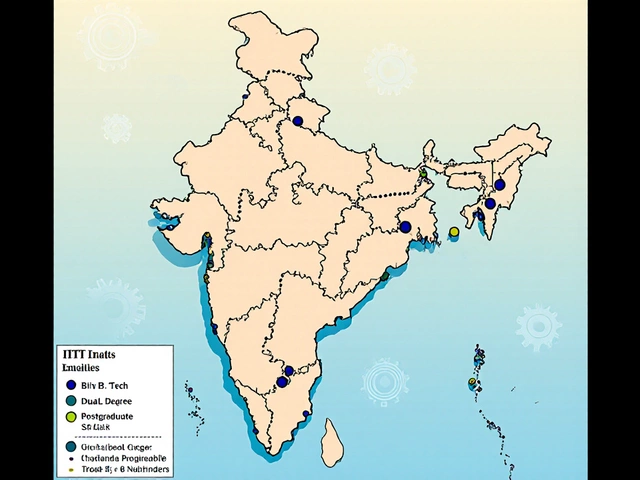Developer Salary Calculator
Estimate Your Salary
Salary estimates based on 2025 U.S. data from Stack Overflow, Glassdoor, and PayScale
Key Takeaways
- Median base salary for a software developer in the U.S. is about $115,000 in 2025.
- Specializations such as data science and cloud engineering push earnings above $150,000.
- Geography, experience level, and company size matter more than the specific programming language.
- Freelance and contract work can match or exceed full‑time salaries when you factor billable rates and overhead.
- Negotiation skills and continuous learning are the biggest levers for boosting pay.
When you hear the phrase "coding jobs," the first thing that pops into most people’s heads is a laptop, a line of code, and maybe a modest paycheck. In reality, the tech labor market has stretched far beyond that stereotype. This guide breaks down the numbers, shows which roles command the highest salaries, and gives you practical steps to turn a coding hobby into a paycheck that feels worth the effort.
Coding jobs are positions that require writing, testing, or maintaining source code for software applications, websites, or embedded systems. If you’re asking whether these jobs pay well, the answer hinges on three factors: therole you choose, thelocation you work in, and theexperience you bring.
What "well" Means in 2025
Salary perception varies by region. In the United States, the Bureau of Labor Statistics (BLS) reports a median annual wage of $115,000 for software developers, up from $107,000 in 2022. In contrast, countries like India and Brazil see median figures around $15,000 and $22,000 respectively. When we talk about "well-paid," we usually compare earnings to the cost of living in a given area.
To make the numbers concrete, here are three salary brackets that most readers find useful:
- Entry‑level (0‑2 years): $70‑90k in the U.S., $12‑20k in emerging markets.
- Mid‑career (3‑7 years): $110‑150k in the U.S., $30‑45k elsewhere.
- Senior/lead (8+ years): $150‑250k+ in high‑cost cities, $60‑100k in lower‑cost regions.
How Different Coding Roles Stack Up
Not all coding jobs are created equal. Below is a quick snapshot of the most common titles you’ll see on job boards, paired with median total compensation (base + bonus + equity) in 2025. The figures pull from the Stack Overflow Developer Survey, Glassdoor, and PayScale.
| Role | Base Salary | Bonus / Equity | Total Compensation |
|---|---|---|---|
| Front‑end developer | $105,000 | $10,000 | $115,000 |
| Back‑end developer | $115,000 | $15,000 | $130,000 |
| Full‑stack developer | $120,000 | $20,000 | $140,000 |
| Data scientist | $130,000 | $25,000 | $155,000 |
| DevOps engineer | $125,000 | $18,000 | $143,000 |
| Machine‑learning engineer | $140,000 | $30,000 | $170,000 |
| Cloud architect | $150,000 | $35,000 | $185,000 |
Notice that "full‑stack" and "cloud" titles pull higher totals, mainly because companies reward the breadth of skills and the strategic impact of managing infrastructure.
Geography: Where the Money Grows
Silicon Valley still leads with the highest median salaries, but the gap is narrowing. Austin, Texas; Raleigh, North Carolina; and Denver, Colorado now boast average base pay within 5% of the Bay Area while offering a lower cost of living. Internationally, cities like London, Berlin, and Sydney sit in the $100‑120k range, whereas remote‑first companies often use a “location‑adjusted” model that pays according to the employee’s home city.
If you can work remotely, consider targeting firms that use remote‑first salary bands. These companies typically publish a transparent salary grid on their career page, letting you see the exact pay for junior, mid‑level, and senior roles before you apply.
Freelance vs. Full‑Time: Which Pays More?
Many developers wonder whether contract work can out‑earn a salaried position. The answer is nuanced:
- Billable rate matters. In 2025, the average hourly rate for a senior freelance developer in the U.S. is $150‑$200. Multiply by a 40‑hour week and you get $300k‑$400k in gross revenue.
- Utilization rate is the real driver. Most freelancers spend only 60‑70% of their time on billable work due to marketing, admin, and downtime.
- Benefits gap. Full‑time employees receive health insurance, retirement matching, and paid time off, which can be valued at 20‑30% of base salary.
If you can maintain an 80% utilization rate, freelance earnings will likely surpass a comparable salaried role. However, the trade‑off is less stability and the need for self‑discipline.
How to Boost Your Paycheck
Negotiation, skill stacking, and strategic moves are the three levers that most developers use to increase earnings.
- Negotiate early. Counter‑offers before you accept the first offer. Cite market data from Glassdoor or the Stack Overflow survey.
- Learn high‑demand tech. Cloud platforms (AWS, Azure, GCP), containerization (Docker, Kubernetes), and AI frameworks (TensorFlow, PyTorch) command premium rates.
- Earn certifications. Certifications from AWS, Google Cloud, or the Certified ScrumMaster can add $5k‑$15k to your annual salary.
Another under‑utilized tactic is “job‑hopping” strategically. Moving every 2‑3 years can yield a 10‑20% salary bump, but balance it against the loss of stock options and seniority.

Real‑World Examples
Sam, a front‑end developer from Austin, started at $85k after college. By adding React Native and taking a few AWS certifications, he negotiated a $135k package within three years. Meanwhile, Priya, a freelance back‑end specialist in Mumbai, charges $45/hr and averages a $90k net income after taxes, which is roughly four times the local median salary for a software engineer.
These stories illustrate that the same set of skills can generate very different outcomes based on location, employment model, and willingness to specialize.
Career Path Checklist
Use this quick checklist to gauge where you stand and what you need to do next:
- Identify your current role (e.g., front‑end, back‑end, data science).
- Check the median salary for that role in your city using BLS or Payscale.
- Rate your skill set against high‑demand technologies (cloud, AI, security).
- Pick one certification or project that fills the biggest gap.
- Prepare a salary‑benchmark spreadsheet and schedule a negotiation meeting.
Follow the checklist, and you’ll have a data‑driven conversation with your manager or prospective client.
Quick FAQ
Do coding jobs pay more than non‑tech jobs?
On average, yes. The median salary for a software developer in the U.S. ($115k) exceeds the national median for all occupations, which hovers around $55k.
Which programming language leads to the highest salary?
Languages tied to cloud and data work-such as Python, Go, and Kotlin-often fetch the highest offers, especially when paired with AI or big‑data experience.
Is freelance coding more profitable than a full‑time job?
Freelance rates can exceed salaried pay, but only if you keep a high utilization rate and cover your own benefits. For most developers, a hybrid approach-full‑time job + side gigs-offers the best balance.
How does location affect a coding salary?
Cities with a high concentration of tech firms (e.g., SanFrancisco, Seattle, NewYork) pay a premium. However, remote roles are flattening the curve, letting developers in lower‑cost areas earn near‑market rates.
What certifications boost a developer’s salary?
AWS Certified Solutions Architect, Google Professional Cloud Architect, and Certified Kubernetes Administrator are among the top earners, often adding $5k-$15k to a base salary.
Bottom line: coding jobs can pay very well, especially when you target in‑demand specializations, negotiate smartly, and stay adaptable to remote work trends. Use the data, plan your skill upgrades, and watch your paycheck grow.








0 Comments